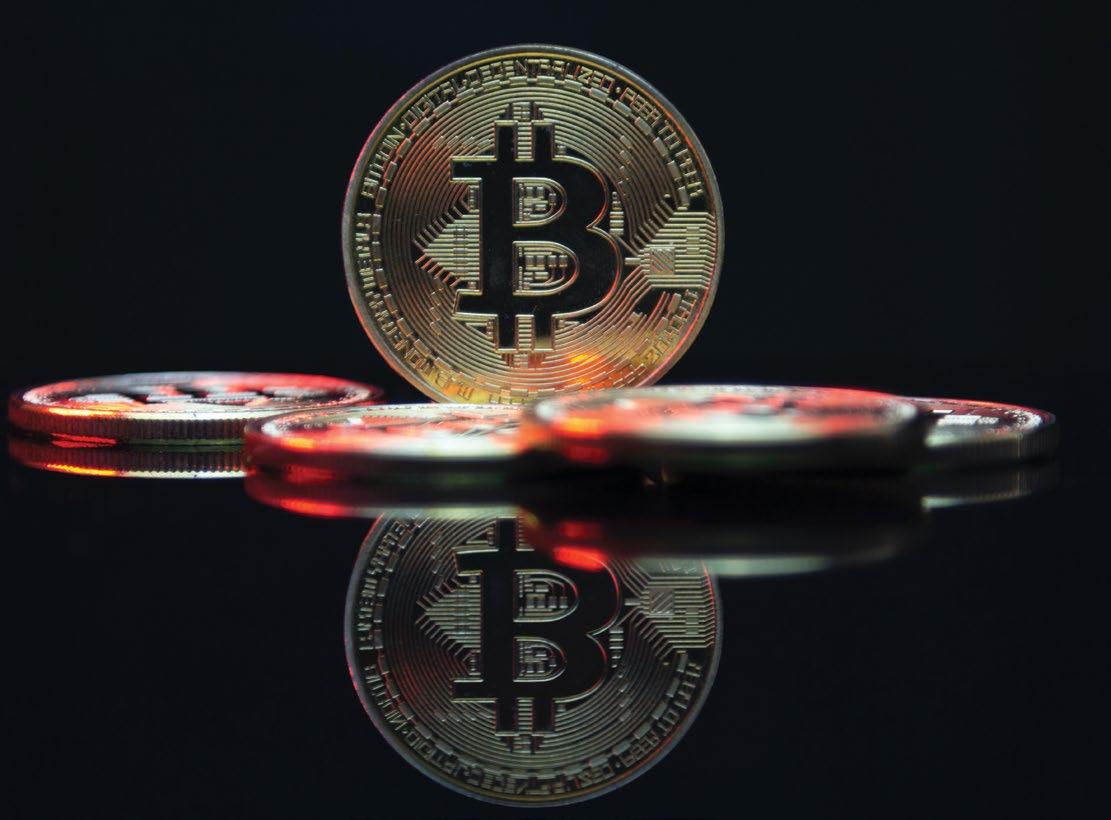
3 minute read
Bitcoin: An Insider Perspective
What started with a group of “cypher punks” and the mysterious pseudonym Satoshi Nakamoto in 2009 has now led to Facebook changing its name to Meta in 2021 and according to some, is about to transform the world we live in ways we can’t even imagine.
Are you ready?
Advertisement
The most popular network protocol in the world, TCP/IP protocol suite, was invented in the 1970s by two DARPA scientists, Vint Cerf and Bob Kahn, persons most often called the fathers of the internet. Little did they know the magnitude of impact and disruption to the world their invention would cause. The free flow of information enabled innovation at a rate we had never seen in our history. For better or worse, we live in a different world than the world before the internet.
The next wave of this global transformation is based on a new protocol that enables the free flow of value. The resulting innovation is happening faster than ever. Industries thought to be impenetrable are about to be disrupted and opportunities for global economic growth will raise the standard of living for everyone, especially for underdeveloped countries. Do you really understand what bitcoin is?
Naysayers were in full force during the invention of the automobile, electricity, the internet, and now bitcoin. Transformational inventions like these don’t care what people think. Don’t be fooled by the naysayers who know as much about bitcoin as they do about how the internet works. A tsunami is coming, and it is a once in a lifetime opportunity for those who are independent thinkers, innovators, and visionaries. Bitcoin is a poor name for a protocol that enables the free flow of value. Satoshi Nakamoto named it bitcoin when he/she wrote the white paper in 2008, but it speaks nothing to what it really is. Cryptography, digital signatures, and peer-to-peer (P2P) technologies were combined to solve a longtime computer science problem called “the double spend” problem. Until bitcoin, there was no way to transfer data in the digital world like we transfer objects in the physical world. In the physical world, objects leave our possession when transferred to another person. In the digital world, copies of data remain on our computers and a thousand servers in between, such as when sending an email. This is why digital value can not be transferred without a trusted intermediary to insure fair play. For example, banks are the trusted intermediary for transferring money. Bitcoin fundamentally changes hierarchical systems of trust. Throughout history, centralized hierarchical systems of trust is all we’ve ever known. This creates a challenge for many to understand bitcoin since we have nothing in our known universe with which to associate it. These ancient systems of trust are bottlenecks to innovation and fertile ground for corruption.
An Insider’s Perspective on Bitcoin
How Will It Affect Your Future?
By Brian Sewell
Hierarchical systems of trust can’t scale fast enough to keep up with the current rate of innovation. But this new system removes barriers to scale and is immune to corruption because it’s based on math and consensus.
The most logical first application of this technology is money and thus is born bitcoin and a thousand other crypto currencies that compete to create better frictionless payment rails and money solutions. You’ve probably heard of Decentralized Finance (DeFi) and Non-Fungible Tokens (NFT’s), which are a more recent application of this technology. This new protocol makes the “metaverse” possible by enabling the ownership and transfer of things in the digital world like in the physical world. At first glance, it is difficult to see the value of such a solution since we don’t have the same challenges as other nations. Money as the first application of this technology has the potential to connect human capital to global markets in a way that could lift the quality of life for the entire world. Thus, other nations have moved quicker to adopt this technology. In fact, there is a real danger to the United States in neglecting to move quicker by providing a clear regulatory framework for which innovators can innovate. Some nations have moved quickly and are being handsomely rewarded for it. In 1990, If you could have seen what the world looked like in 2022, what would you have done differently? If you haven’t taken the deep dive down the rabbit hole that is bitcoin, maybe now is the time.
Brian Sewell is an early adopter of bitcoin and operates institutional cryptocurrency trading facilities Rockwell Trades (US) and Titan Block (BVI). As CIO and founder of Rockwell Capital Management, he is a well-known technology investor and entrepreneur.










